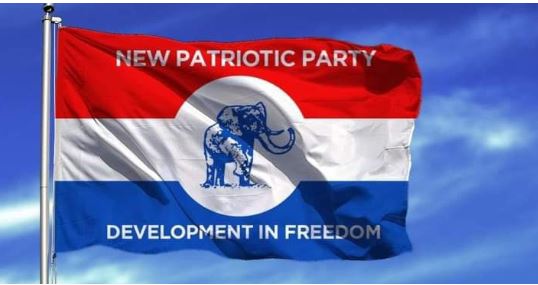A damning post-election review has exposed how the New Patriotic Party’s (NPP) failure to complete key projects in the Ashanti Region and its lopsided development agenda contributed to its unprecedented defeat in Ghana’s 2024 elections.
The report, compiled by the party’s internal committee, reveals a stark disconnect between the government’s touted infrastructure achievements and voter sentiment in its traditional stronghold.
While 88% of respondents acknowledged flagship initiatives like the Prempeh I International Airport, Free SHS, and hospital upgrades, the report found these gains were overshadowed by delayed completions and poor public communication. “Projects were either rushed near election time or left incomplete, making them politically irrelevant,” one NPP strategist admitted. The Suame Interchange in Kumasi—a symbolic promise to Ghana’s second-largest city—stood at less than 5% completion after five years, becoming a lightning rod for frustration. Similarly, the Boankra Inland Port, Kumasi Central Market, and Race Course Market renovations missed critical deadlines, eroding trust in the party’s delivery capacity.
But it was the perceived marginalization of the Ashanti Region, the NPP’s electoral backbone, that cut deepest. A staggering 87% of respondents criticized the government’s uneven project distribution, accusing Akufo-Addo’s administration of prioritizing Greater Accra and the Eastern Region. “We built five interchanges in Accra and Tamale, yet Ashanti was left with unfulfilled pledges,” a party insider fumed. This neglect fueled a voter boycott in the region, with turnout plummeting in areas like Kumawu. A local teacher captured the mood: “Ashanti always votes to develop others. This time, we let those regions vote for their own progress.”
The report underscores how the NPP misread its base. While the party banked on mega-projects to sway voters, Ashanti residents resented what they saw as transactional neglect—a pattern of taking their loyalty for granted without reciprocal development. Analysts argue the region’s electoral cold shoulder was less an endorsement of the NDC and more a protest against broken promises.
Political observers warn the findings carry broader lessons for Ghana’s democracy. “Parties can no longer rely on strongholds without delivering tangible benefits,” said Accra-based analyst Eric Asante. “Voters, especially in urban areas, are prioritizing accountability over tradition.” With the NPP now in opposition, the report urges a reckoning with its regional equity gaps and project management failures. But as Ghana’s political landscape grows increasingly competitive, the 2024 upset serves as a stark reminder: in democracies, even the most loyal voters won’t settle for crumbs.
Send your news stories to newsghana101@gmail.com
Follow News Ghana on Google News
















